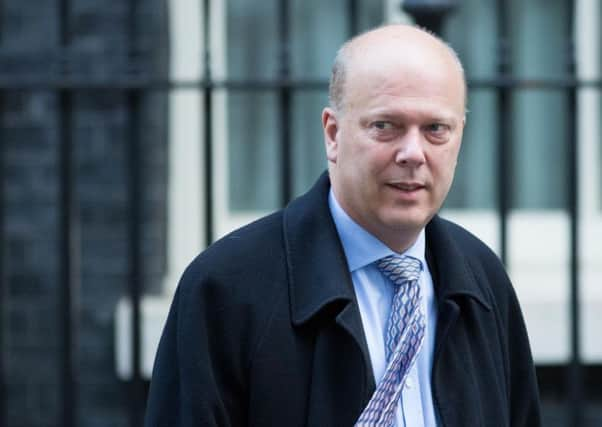Mark Casci: Grayling haulage debacle typical of Government's slapdash Brexit approach


You have spent your entire working life working in a sector which now finds itself at the mercy of negotiations between politicians from 28 different countries.
You neither supported or opposed leaving the European Union but are aware the failure to secure a deal on trade, specifically the transfer of goods between the UK and the European Union, could destroy your business and the jobs of more than 100 staff within a handful of days.
Advertisement
Hide AdAdvertisement
Hide AdYou are then given the opportunity to speak with one of the most powerful people in the country on this most existential of matters and find that he, and his advisers, lack even the most elementary knowledge base of your industry.
This is what happened to Yorkshireman Kevin Hopper this month.
His business, Brian Yeardley Continental, is worth £80m and is enjoying one of its most successful periods of trading in its history. It works across a diverse range of logistics, from white goods to the movement of stage and production equipment for touring rock bands. He employs 104 people in Featherstone, West Yorkshire, and has spent his whole life in haulage.
He has grown increasingly concerned over recent months at the apparent lack of progress in securing the deal which, prior to the referendum, leading Brexiteers said would be easy.
Advertisement
Hide AdAdvertisement
Hide AdWhen he was asked to attend a meeting with Chris Grayling at the Department for Transport, Mr Hopper became hopeful – why else would the Transport Secretary want to speak to haulage bosses? An update had to be forthcoming, didn’t it?
Alas, the tone of the meeting would provide no answers, only more questions and concern.
Mr Hopper sat agog as he, and his fellow leaders in the haulage sector, were told by Mr Grayling to “prepare for the worst” before offering what he viewed as a contingency plan to create a vast lorry park in Kent to prevent queues at the port, and to make up for the shortfall in goods being driven in and out of Europe by placing British firms in sole charge of internal transportation of goods within the UK.
The latter refers to a process known as cabotage. It essentially allows drivers of member states the same rights as citizens of whichever state they are operating within to carry out domestic trade deliveries.
Advertisement
Hide AdAdvertisement
Hide AdThis means, for example, a Spanish driver could drive to Scotland from, say, Madrid, drop off their cargo and, in turn, deliver goods to, say, Cambridge on the way home. Mr Grayling’s plan denies foreign drivers this right and hands it solely to UK drivers.
It was upon the delivery of this update that Mr Hopper could hold his tongue no longer.
“Please tell me you are not hanging your hat on a truck park in Kent and cabotage,” he said.
His exasperation was clear and justifiable. Here he was, sitting across from a minister at the top of Government, who himself had campaigned for Brexit, and found that they were unaware of even the most basic rules as to how goods are transported both in and around the UK.
Advertisement
Hide AdAdvertisement
Hide Ad“I do not want to appear disrespectful but it was clear he either knew nothing about the transport industry or was ill-informed,” he told The Yorkshire Post.
His views are by no means a lone voice in the wilderness.
The Government’s other plan to mitigate against a potential cut-off point in moving goods between here and Europe in March next year is by trying to negotiate bilateral permits with EU member states on an individual basis.
The Road Haulage Association has described such plans as a “nightmare” as they would only cover a single journey.
This newspaper, joined by an increasing number of others, has grown increasingly wearisome of Mr Grayling’s record in office.
Advertisement
Hide AdAdvertisement
Hide AdHis mismanagement of the summer’s railway crisis has demonstrated him utterly unfit to manage a Government department.
This latest debacle with the hauliers is further proof of this, and sadly emblematic of a Government either unwilling – or unable – to listen to business leaders to deliver a Brexit that delivers on its promise to advance this country’s economic prospects.